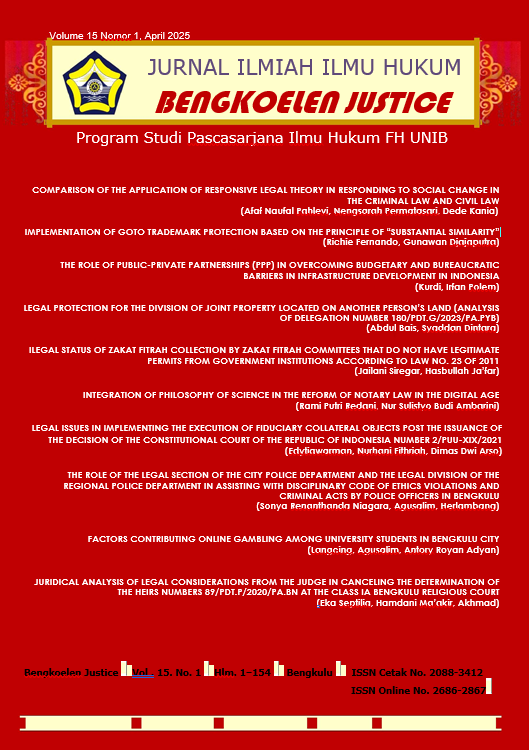Main Article Content
Abstract
The development of digital technology has driven fundamental changes in notarial practices, which were previously conventional, relying on physical documents and the direct presence of notaries. However, the existing regulation, Law No. 2/2014 on Notary Position, has not comprehensively accommodated this digital transformation. This research aims to analyze the importance of the integration of philosophy of science in the reform of notarial law, so as not only to adjust the technical aspects, but also to uphold the basic values of law. This research uses a literature study method with a juridical-normative and philosophical approach. The study was conducted by reviewing legal documents, theories, and the results of previous research. The results show that the integration of philosophy of science through epistemology, ontology, and axiology approaches is able to provide a strong conceptual basis for the renewal of digital notarial law. The epistemology aspect highlights the importance of scientific verification of electronic deeds, ontology demands legal recognition of the existence of digital documents, while axiology emphasizes justice, professional ethics, and social usefulness. With the integration of the three branches of philosophy of science, it is hoped that legal policies will be created that are not only responsive to technological developments, but also based on the basic principles of the notary profession: legal certainty, expediency, and protection of the interests of the wider community. With this framework, the reform of notary law can run effectively and sustainably, not merely as a response to technological trends, but as a form of commitment to a fair, valid, and responsive legal system.
Keywords: Axiology, Epistemology, Philosophy of Science, Kenotariatan Law, Ontology.
Article Details
Copyright (c) 2025 Rami Putri Redani -, Nur Sulistyo Budi Ambarini

This work is licensed under a Creative Commons Attribution-ShareAlike 4.0 International License.

Ciptaan disebarluaskan di bawah Lisensi Creative Commons Atribusi-BerbagiSerupa 4.0 Internasional.
